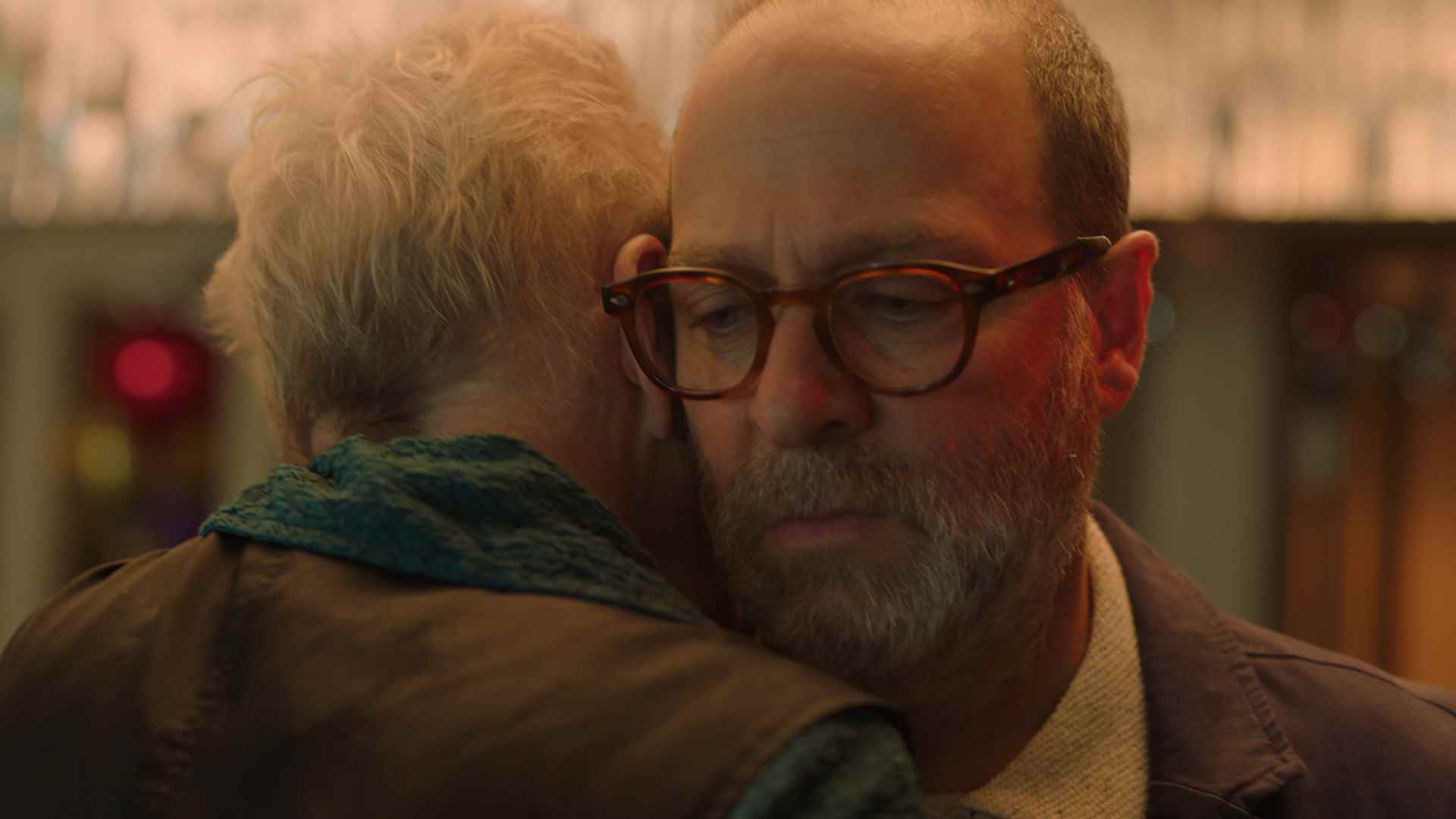Checked into a California community called Bella Vista (one that shares its name with the small Arkansas town where this critic’s elderly parents reside), Ruth chafes against the imposing forces of charming caregivers Brian (Andy McQueen) and Vanessa (Carolyn Michelle Smith), whose efforts chip away at her already-eroding autonomy. Familiar Touch splits its time equally between the changes she encounters—the memory tests administered by Brian, the meals served in the cafeteria, the reading circle going through the newspaper—and the more elemental parts of her that persist under these new circumstances.
Ruth is elegant, bawdy, and proud. She’s a hell of a cook, a bit of a horndog, and a maternal doter. Chalfant lends even the most expected and potentially saccharine moments grace, and Friedland rarely gives into the impulse to over-dramatize these vignettes. Rather, her story finds its reality in its expressive framings and in Chalfant’s expectant expressions. Inside those well-trod scenes—scenes exposing the personality traits still lying under the surface of an older person that contrast with their harmless image, be they horniess or well-meaning political incorrectness—there is still a softness found in its slow pace and quiet speech. There’s almost never more dialogue than there needs to be, with sequences often focusing on images, sound, and feeling.
Friedland and cinematographer Gabe C. Elder bring the camera close to Ruth, emphasizing how entrenched in her point-of-view the film is. These tight frames are keyed into her breath, her body. As her past fades out, her present becomes primarily one of sensory experience, eyes closed, basking in the warm sun, feeling the steady beat of her own pulse, or drifting off in the liquid arms of a pool. These pleasant moments combine with the foundational parts of her personality—the parts that grew up in a kitchen, that raised her son, that appreciated picking the right outfit—to reflect a new reality that’s not as diminished or weepy as so many stories relating to cognitive decline. And yet, focusing on the minutiae of these in-between moments, on bathing and tossing and turning in bed and chopping vegetables, also keeps the film away from any kind of hokey treatise on “dignity.”
There’s certainly pain and pride to be found in stories of dementia, but the beauty of Familiar Touch is its perspective. The issues that bring Ruth to Bella Vista can become serious, as a late sojourn off-campus highlights, but because of its empathetic framing, they also always feel more like problems for other people rather than problems for Ruth. As Chalfant preens, jokes, and carries on throughout her character’s evolving mental landscape, she threads recognition and persistence into a performance defined by confusion. This approach contributes to the idea that our lives are not a single fading picture, but formed from a long series of imperfect snapshots—like how single frames, quickly played in succession, form the illusory whole of a film.
Director: Sarah Friedland
Writer: Sarah Friedland
Starring: Kathleen Chalfant, Carolyn Michelle, Andy McQueen, H. Jon Benjamin
Release Date: June 20, 2025

 Keep scrolling for more great stories.
Keep scrolling for more great stories.
